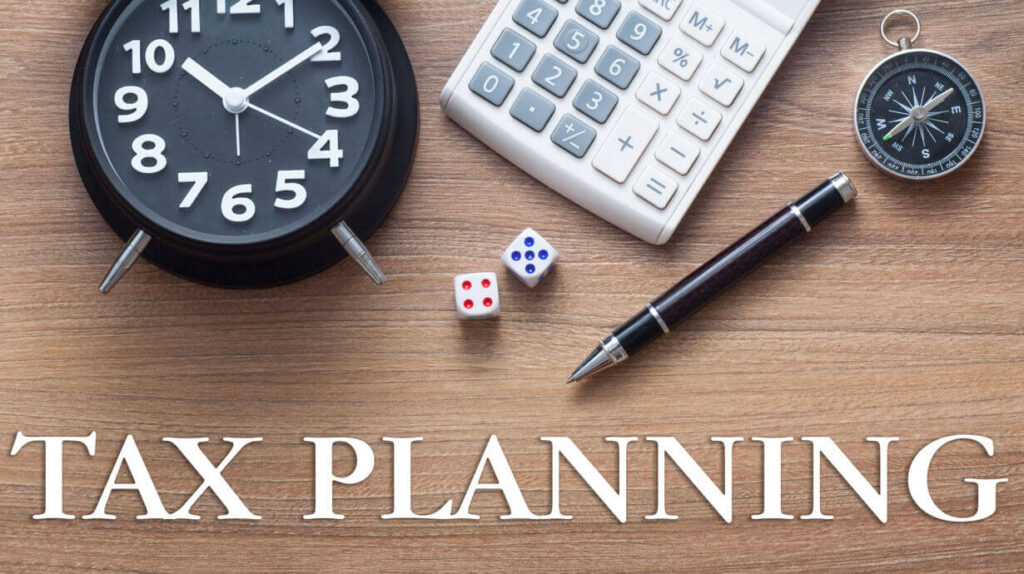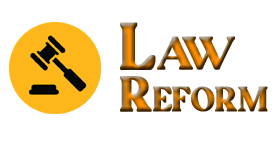Tax seasons can be a challenging time for many individuals and businesses. The complex nature of taxes and the constant changes in tax laws can make it overwhelming to navigate through the process. However, with professional tax planning, you can significantly impact your bottom line and ensure that you are maximizing your financial opportunities.
Understanding the Importance of Tax Planning
When it comes to managing your finances, tax planning plays a crucial role. It involves analyzing your financial situation and making strategic decisions to minimize your tax liability while maximizing your savings. By taking a proactive approach to tax planning, you can optimize your financial goals and achieve long-term success.
The Role of Tax Planning in Financial Management
Tax planning is an integral part of overall financial management. It allows you to forecast and plan for you. An ongoing tax obligation, in concert with private confidence and acceptance of the ensuring that you have sufficient funds set aside. By incorporating tax planning into your financial strategy, you can effectively manage cash flow, reduce surprises, and make informed financial decisions throughout the year.
See Also: Strategic Tax Solutions for Maximising Returns and Minimising Liabilities
How Tax Planning Affects Your Bottom Line
Professional tax planning can have a significant impact on your bottom line. It enables you to identify tax-saving opportunities, such as deductions and credits, that can lower your overall tax burden. By optimizing these opportunities, you can increase your savings, preserve more of your hard-earned money, and ultimately improve your financial outcomes.

One key aspect of tax planning is understanding the ever-changing tax laws and regulations. Tax codes are complex and can be overwhelming for individuals and businesses alike. However, by staying informed and working with a knowledgeable tax professional, you can navigate through the intricacies of the tax system and ensure that you are taking advantage of all available tax-saving strategies.
Another important consideration in tax planning is the timing of your financial decisions. By strategically timing your income and expenses, you can minimize your tax liability. For example, if you have the flexibility to defer income to a future year when you expect to be in a lower tax bracket, you can potentially reduce the amount of taxes you owe. Similarly, by accelerating deductible expenses into the current year, you can maximize your tax savings.
Furthermore, tax planning goes beyond just reducing your current tax bill. It also involves long-term planning to minimize taxes in the future. By utilizing retirement accounts, such as IRAs and 401(k)s, you can take advantage of tax-deferred growth and potentially lower your taxable income during retirement. Additionally, estate planning strategies can help minimize estate taxes and ensure a smooth transfer of wealth to your heirs.
In conclusion, tax planning is a critical component of financial management. It allows you to optimize your financial goals, reduce your tax burden, and make informed financial decisions. By staying informed, working with a tax professional, and strategically timing your financial decisions, you can maximize your savings and improve your overall financial outcomes.
The Process of Professional Tax Planning
Professional tax planning involves a systematic approach to ensure that your tax strategy aligns with your financial goals. The process typically includes an initial assessment and goal setting, followed by the implementation of strategic tax planning techniques.
Initial Assessment and Goal Setting
Before creating a tax plan, it is essential to assess your financial situation and identify your goals. This involves evaluating your income, expenses, investments, and potential tax risks. By understanding your unique circumstances, a tax professional can create a customized plan to help you achieve your financial objectives.
During the initial assessment, a tax professional will dive deep into your financial records, meticulously analyzing every aspect to gain a comprehensive understanding of your tax situation. They will examine your income sources, such as salaries, bonuses, dividends, and rental income, to determine the most effective tax strategies for optimizing your tax liability.
Moreover, the assessment will also involve a thorough review of your expenses, including mortgage interest, medical expenses, and education costs. By identifying potential deductions and credits, a tax professional can help you maximize your tax savings and minimize your overall tax burden.

Strategic Tax Planning Techniques
Once the initial assessment is complete, a tax professional will implement various strategic tax planning techniques. These techniques may include income shifting, investment planning, retirement account contributions, and charitable giving strategies. By strategically navigating the tax code, professionals can help you optimize your deductions and credits while minimizing your tax liability.
Income shifting is a technique that involves redistributing income among family members or entities to take advantage of lower tax brackets. By shifting income to individuals with lower tax rates, you can reduce your overall tax liability and keep more money in your pocket.
Investment planning is another crucial aspect of strategic tax planning. A tax professional will analyze your investment portfolio and identify opportunities to minimize capital gains taxes and maximize tax-efficient investment strategies. They will consider factors such as tax-loss harvesting, tax-efficient asset allocation, and the utilization of tax-advantaged accounts to help you achieve your investment goals while minimizing your tax obligations.
Retirement account contributions play a significant role in tax planning. By contributing to retirement accounts such as 401(k)s or IRAs, you can not only save for the future but also reduce your taxable income in the present. A tax professional will guide you through the complex rules and regulations surrounding retirement account contributions, ensuring that you make the most of these tax-advantaged savings vehicles.
Charitable giving strategies can also be employed to optimize your tax planning. By donating to qualified charitable organizations, you can not only support causes close to your heart but also potentially receive tax deductions. A tax professional will help you navigate the rules and regulations surrounding charitable giving, ensuring that your donations are structured in a way that maximizes your tax benefits.
Benefits of Professional Tax Planning
Engaging in professional tax planning offers numerous benefits that can significantly impact your financial outcomes. Some of these benefits include:
Maximizing Deductions and Credits
One of the key advantages of professional tax planning is the ability to maximize your deductions and credits. Tax professionals have in-depth knowledge of tax laws and can identify deductions and credits that you may have been unaware of. By taking advantage of these opportunities, you can potentially reduce your taxable income and increase your tax savings.

Reducing Tax Liability and Increasing Savings
Another crucial benefit of professional tax planning is reducing your tax liability. By implementing strategic tax planning techniques, a tax professional can help minimize the amount of taxes you owe. This reduction in tax liability can translate into increased savings and improved financial flexibility for you and your business.
However, the benefits of professional tax planning extend beyond just maximizing deductions and reducing tax liability. Let’s explore a few additional advantages that can make a significant difference in your financial well-being.
Ensuring Compliance with Tax Laws
One of the primary responsibilities of a tax professional is to stay updated with the ever-changing tax laws and regulations. By engaging in professional tax planning, you can ensure that you are in full compliance with all applicable tax laws. This not only helps you avoid any potential penalties or legal issues but also provides you with peace of mind knowing that your tax returns are accurate and in line with the latest regulations.
Strategic Financial Planning
Professional tax planning goes hand in hand with strategic financial planning. Tax professionals not only focus on minimizing your tax liability but also take a holistic approach to your financial situation. They can provide valuable insights and advice on how to optimize your overall financial strategy, taking into account your long-term goals, investments, and retirement plans. By incorporating tax planning into your broader financial planning, you can make informed decisions that align with your financial objectives.
As you can see, professional tax planning offers a range of benefits that go beyond just saving money on taxes. It provides you with expert guidance, ensures compliance with tax laws, and helps you make informed financial decisions. By investing in professional tax planning, you can optimize your financial outcomes and set yourself up for long-term success.
Common Misconceptions About Tax Planning
While professional tax planning offers significant advantages, there are some common misconceptions that can hinder individuals from seeking professional assistance.
Debunking Tax Planning Myths
One prevalent myth is that tax planning is only beneficial for wealthy individuals or businesses. However, tax planning is essential for individuals of all income levels. By working with a tax professional, you can navigate the complexities of the tax code and maximize your savings, regardless of your financial situation.
Let’s take a closer look at this misconception. It’s true that tax planning can provide substantial benefits for high-net-worth individuals and businesses with complex financial structures. However, it is equally important for individuals with more modest incomes. Tax planning can help you identify deductions and credits that you may not be aware of, ultimately reducing your tax liability and putting more money back in your pocket.
Furthermore, tax planning goes beyond just reducing your tax bill. It can also help you achieve long-term financial goals, such as saving for retirement or funding your children’s education. By developing a comprehensive tax strategy, you can make informed decisions that align with your financial objectives.

The Truth About DIY Tax Planning
Some individuals may believe that they can handle their tax planning themselves without professional assistance. While it is possible to handle basic tax preparation, tax planning requires a comprehensive understanding of tax laws and regulations. By partnering with a tax professional, you can ensure that your tax strategy is tailored to your specific needs and goals.
Let’s delve deeper into the potential pitfalls of DIY tax planning. While there are numerous tax software programs available that claim to simplify the process, they often lack the expertise and personalized guidance that a tax professional can provide. Tax laws are constantly changing, and it can be challenging for individuals to stay up-to-date with the latest regulations and deductions.
Moreover, tax planning involves more than just filling out forms and submitting them on time. It requires a strategic approach that takes into account your unique financial circumstances. A tax professional can analyze your financial situation, identify potential tax-saving opportunities, and help you implement a customized plan that maximizes your savings.
Choosing the Right Tax Professional
When it comes to tax planning, selecting the right tax professional is crucial. The expertise and guidance of a qualified tax planner can make a significant difference in your financial outcomes.
Qualities to Look for in a Tax Planner
When evaluating potential tax planners, several key qualities are worth considering. Look for professionals who have extensive experience in tax planning, a deep understanding of the tax code, and a track record of delivering exceptional results for their clients. Additionally, it is essential to find a tax planner who takes the time to understand your financial goals and develops a personalized tax strategy that aligns with your objectives.
Questions to Ask Your Potential Tax Planner
Before engaging a tax professional, it is essential to ask specific questions to ensure they are the right fit for your needs. Questions regarding their qualifications, experience, client references, and fee structure can help you make an informed decision. By asking the right questions, you can establish a productive partnership and set yourself up for financial success.In conclusion, navigating tax seasons can be made more manageable and impactful by embracing professional tax planning. By understanding the importance of tax planning, the process involved, the benefits it offers, and debunking common misconceptions, you can position yourself for financial success. Remember to choose a qualified tax professional who can guide you through the complexities of the tax code and help you maximize your savings. With proper tax planning, you can optimize your bottom line and achieve your financial goals.


